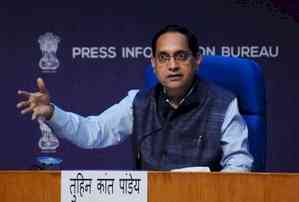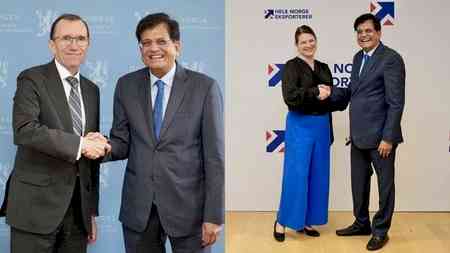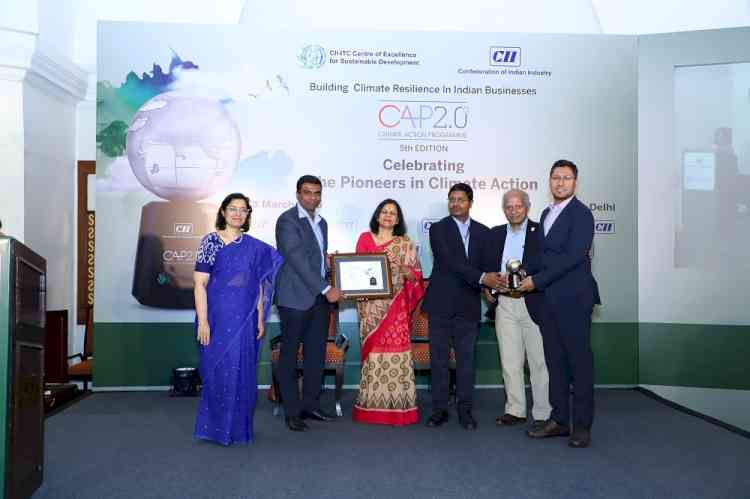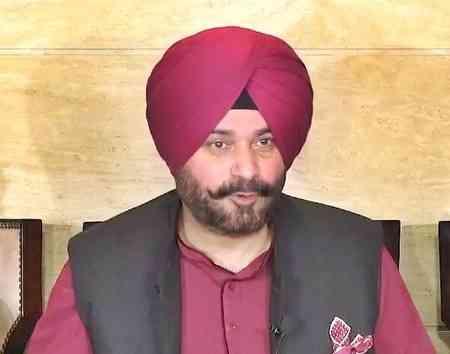PHDCCI to work with AMTZ on Centre of Excellence of Digital Health at Vizag
The session was moderated by Mr. Vivek Seigell, Principal Director, PHDCCI
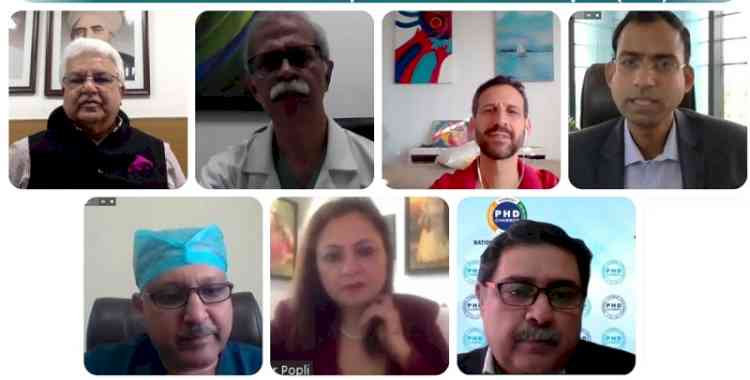
New Delhi: PHDCCI organized a webinar on Digital Health: The Future, Series III on Mobile Digital Health Devices: The Covid-19 Pandemic Impact and Mobile Digital Health Roadmap.
The eminent dignitaries present were Mr. Pradeep Multani, Sr. Vice President, PHDCCI, Dr. N. Subramanian, Chair-Health Committee, PHDCCI & Director, Medical Services, Indraprastha Apollo Hospitals, Dr. Jitendar Sharma, Managing Director, AMTZ, Mr. Levi Shapiro, Founder, mHealth Israel, Dr. Deep Goel, Sr. Director, Dr. B L Kapur Memorial Hospitals and Dr. Harvinder Popli, Co-Chair, Health Committee, PHDCCI & Director, School of Pharmaceutical Science, DPSRU.
While giving the presidential address, Mr. Multani welcomed all the esteemed panellists and talked about the global healthcare emergency led by Coronavirus disease 2019 (COVID-19) which has exposed the gaps in handling Pandemics even in the most advanced economies of the world. Mr. Multani said that the wearable medical device market is expected to reach more than $27 million by 2023, a spectacular jump from almost $8 million in 2017 and shared some common wearable devices. Mr. Multani further added that numerous apps are now available to assist Healthcare Professionals (HCPs) with many important tasks, such as: information and time management; health record maintenance and access; communications and consulting; reference and information gathering; patient management and monitoring; clinical decision-making; and medical education and training, however, the lack of standards and regulations, limited guidance from physicians in selecting healthcare apps, and resistance from traditional healthcare providers are some of the key factors restraining the growth of the market.
Dr. N. Subramanian talked about the benefits and role of Digital Health / Tele-Health technology in several consultations, medical education, cross consultations and many more. Dr. Subramanian told that the first tele health centre was established in Aragonda in the year 2000 and after that there was not much improvement since long but as the pandemic affected the world, they have created controlled centres in remotest part of the India. He further said that WHO has recognized the health hazards to healthcare workers and permitted & adopted the tele-health technology. He further said that accessibility is not anymore dependent on geography, tele-health significantly addressed the major healthcare challenges like accessibility, availability and affordability. Dr. Subramanian shared that the expenditure of USD 45 trillion arising from only to treat the Non communicable diseases which can be minimized by the use of digital health technologies.
Mr. Levi Shapiro talked about the major healthcare challenges that have raised in 2020 and particularly COVID-19 which has obscured many long-term structural needs in Health sector. Mr. Shapiro talked about how the Healthtech investment transformed during these times from telemedicine to software applications to personalised medicines using AI and Big data. Further talking about the Covid impact on the Healthtech start-ups, he mentioned that Covid has been very good for Digital health Start-ups, where the total funding reaches all time high with telemedicine funding got boost to three times. He further said that more than 80% funded start-ups in Israel uses AI in their technology. Mr. Shapiro talked about the ecosystem provided to health tech start-ups and the Israel advantage from prototype to commercialization.
Dr. Jitendar Sharma said that mobile digital health is not a product, its a process. Dr. Sharma said mobile digital health is a spectrum through which multiple products can be fitted which leads to a desired outcome. Dr. Sharma talked about three baskets of digital health innovation starting from traditional & evolving telemedicine program to smart werables to the penetration of mobile health in medical equipments. Dr. Sharma mentioned that the output should be safe, effective delivery of services with a seamless flow of data in a well controlled architecture. Dr. Sharma shared the details of EMRAI (Electronic Medical Records Alliance of India) ,which consists of two parts, the provider and service user part for accessing the patients records. Dr. Sharma mentioned that there is a need for creating a platform so that it becomes easier for any hospital for getting the records of the patients for which every smaller hospitals needs to come into electronic medium in rural areas as well.
Dr. Sharma also mentioned that EMRAI has been supported by Ministry of Electronics and IT and also created a Centre of Excellence at AMTZ and they are happy to associate with PHDCCI also.
Dr. Deep Goel talked about role of digital health and Artificial Intelligence combining together with Digital Health and it could benefit in various ways especially in rural areas, where these services are not available. Dr. Goel also talked about critical care and home care, where the Digital Health could be very beneficial for better output. He also talked about some new applications and products like smart bedsheet which can seamlessly record patient data like BP, Heartrate etc and transfer it to the monitor, which lessens the doctor / nurse visit to patient.
Dr. Goel expressed that tele consultation is the future for India combining it with AI can be the another game changer but a lot need to be done to make it useful and easily available for every common person. Dr. Goel also talked about personalized treatment of a disease for a particular person which can be possible with Mobile AI devices including robotic surgery. Dr. Goel further shared that the digital health future is exciting and there’s a need for creating the opportunities for making a better life of a common man by improving primary and secondary health care needs.
Dr. Harvinder Popli gave a formal vote of thanks to all the panellists for sharing their valuable knowledge on Digital Health and inputs to bring the Mobile Medical technology to the grass root level. Dr. Popli also talked about the release of Digital Health guidelines by MoHFW, Govt. of India & WHO guidelines on mHealth and said that there is a lot of scope for the growth for this technology. She further said that the current epidemic of chronic illnesses, in both developed and developing economies, illustrates the need for innovative, efficient, technology-supported interventions. She further added that mobile health applications and services are becoming an essential tool in extending health care resources around the world.
The session was moderated by Mr. Vivek Seigell, Principal Director, PHDCCI and Mr. Seigell shared the PHDCCI support to play a critical role to create the Centre of Excellence for Digital Health with AMTZ at Vizag. The webinar was attended by more than 60 delegates.


 cityairnews
cityairnews 
